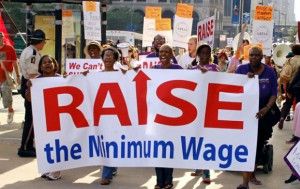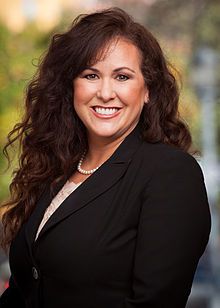Years after CalWatchdog investigation, bill to end sub-minimum wage advances
 More than 2 million workers in California are celebrating the new year’s bump in the minimum wage.
More than 2 million workers in California are celebrating the new year’s bump in the minimum wage.
Effective January 1, the state’s minimum wage increased from $9 to $10 an hour. But, not all workers in the state benefited from that minimum wage increase.
It’s legal in California to pay some workers less than the minimum wage. As CalWatchdog.com has reported for years, a Depression-era loophole in federal law, Section 14 (c) of the Fair Labor Standards Act of 1938, allows employers to obtain a special wage certificate to pay workers with disabilities less than the minimum wage.
Critics say that the law allows for the legal exploitation of people with disabilities, creates a separate system of worker rights for the disabled and is “humiliating,” “degrading” and makes people with disabilities feel like “second-class citizens.”
A 2012 CalWatchdog.com investigation first reported that five California-based Goodwill charities used the special wage certificate program to pay hundreds of employees less than minimum wage, while also providing lucrative compensation packages to top executives.
“Anyone who believes that all work is dignified and all workers deserve fair treatment, has to be outraged by these practices,” Lorena Gonzalez, then secretary-treasurer of the San Diego-Imperial Counties Labor Council, told CalWatchdog.com in 2012.
Assemblywoman Lorena Gonzalez leads on minimum wage equity
 Now a member of the state Legislature, Gonzalez is doing something about that injustice — by advancing legislation that would end the practice completely in California.
Now a member of the state Legislature, Gonzalez is doing something about that injustice — by advancing legislation that would end the practice completely in California.
Assembly Bill 488 would eliminate an exemption for employees of sheltered workshops and rehabilitation centers with special minimum wage licenses under the California Fair Employment and Housing Act, extending the law’s protections against discrimination and harassment to workers in those environments.
“This bill guarantees these employees the same civil rights that all other workers, including interns, already receive,” Gonzalez said. “There’s no reason these workers should receive less protection from discrimination or harassment on the job.”
On Wednesday, the Assembly Committee on Labor and Employment passed AB488 on a 5-0 vote. Republican Assemblyman Matthew Harper of Huntington Beach joined Democratic Assembly members Roger Hernández of West Covina, Evan Low of Campbell, Kevin McCarty of San Diego, and Tony Thurmond of Richmond in backing the bill.
Goodwill Industries: Biggest Name in Special Wage Program
In recent years, Goodwill Industries has become the poster-child for exploitation of workers with disabilities. More than 100 Goodwill entities nationwide have employed workers through the Special Wage Certificate program. A 2013 Watchdog.org investigation revealed that these same Goodwill entities that use the special wage program simultaneously spent $53.7 million in total executive compensation.
“Section 14(c) of the Fair Labor Standards Act authorizes employers, after receiving a certificate from the Wage and Hour Division, to pay special minimum wages — wages less than the Federal minimum wage — to workers who have disabilities for the work being performed,” the Department of Labor explains on its website.
Goodwill justifies the practice as a tool to hire people with severe disabilities, who would otherwise be unable to find work. Other supporters of the special wage certificate program contend that people with disabilities are not as productive as able-bodied individuals.
However, labor experts dispute those claims. Samuel R. Bagenstos, a professor of law at the University of Michigan Law School and a former deputy attorney general for civil rights, has detailed numerous examples of how workshop employers automatically assigned jobs “without any connection to the abilities and background of the individuals.”
In 2014, Gonzalez and State Senator Ben Hueso introduced Assembly Joint Resolution 36 to increase pressure on Congress to repeal the Depression-era law.
Related Articles
Lance Armstrong should have kept fighting
Aug. 27, 2012 By John Seiler With a name like Lance-Arm-Strong, Lance Armstrong should have kept fighting the anti-doping charges
Hertzberg seeks permanent extension to taxpayer relief program
As California taxpayers brace for another round of tax increases this session, they’ve found an unlikely ally in the state Legislature.
Brown’s ‘WaterFix’ has new momentum – but daunting obstacles remain
Just six weeks ago, Gov. Jerry Brown’s hopes for a huge, difficult legacy project to solidify California’s statewide water distribution




